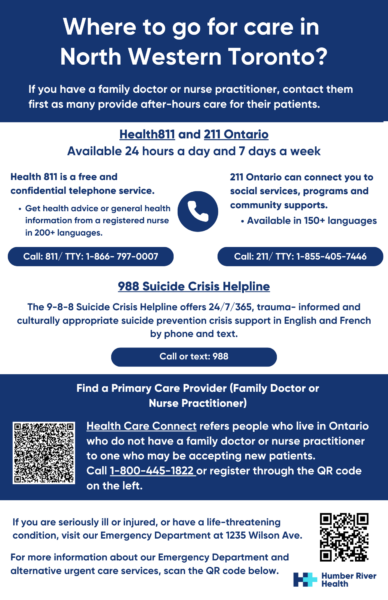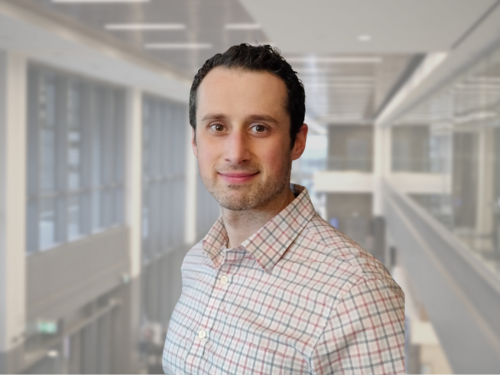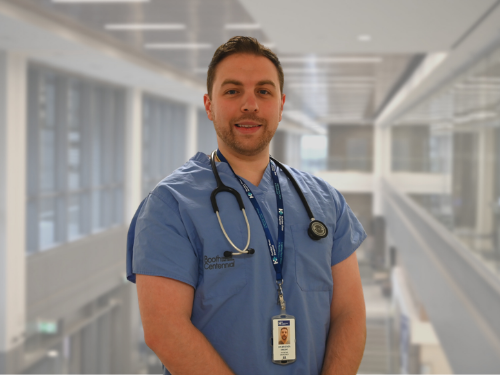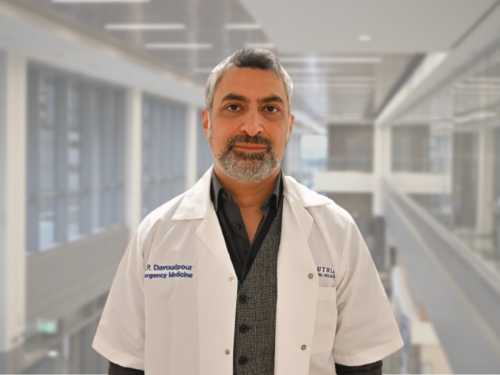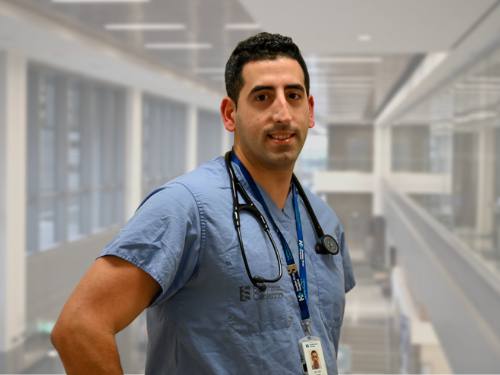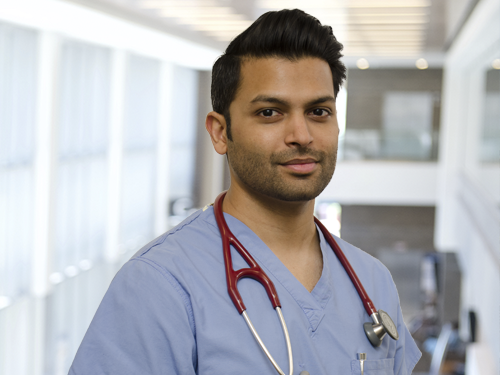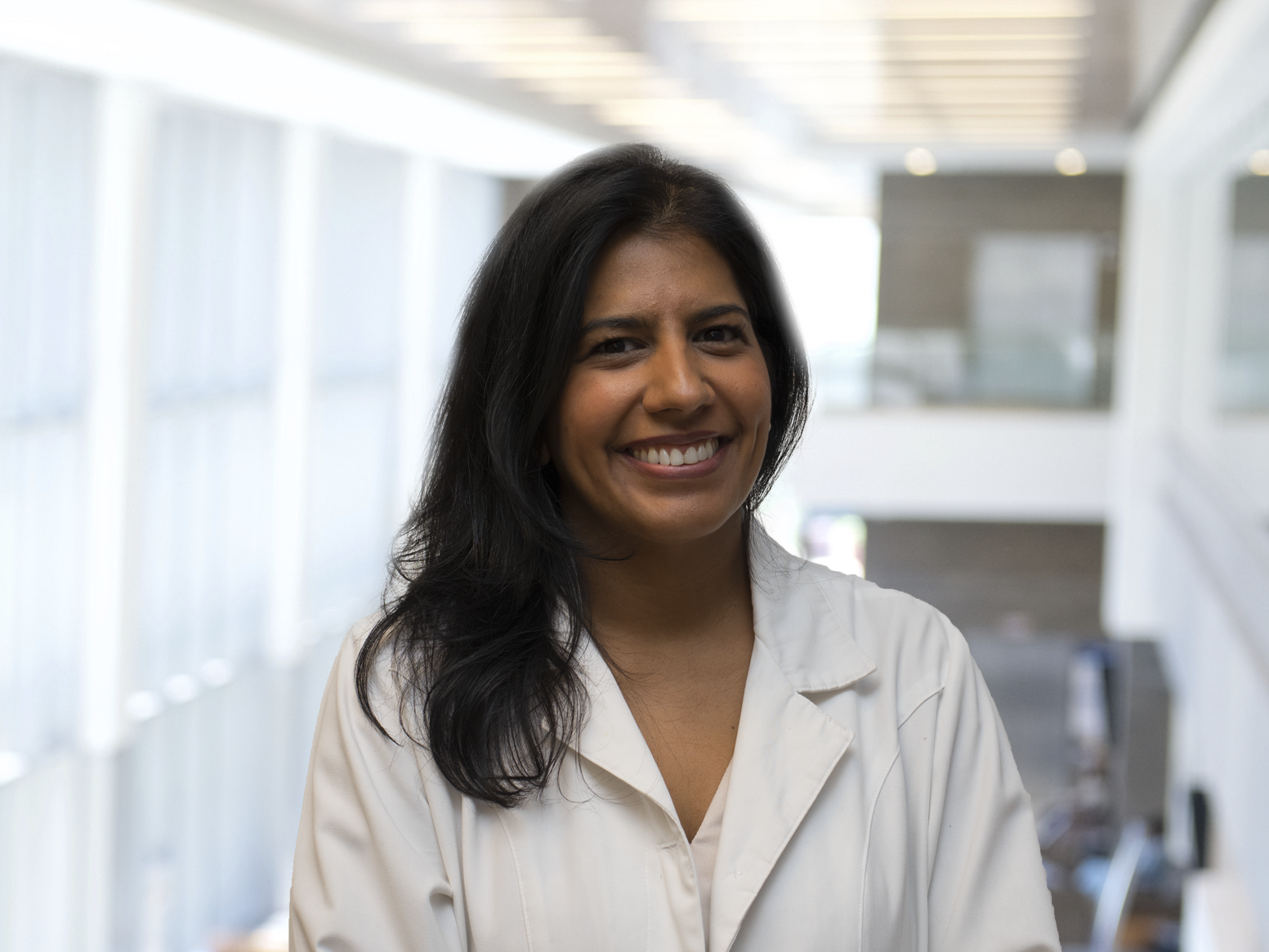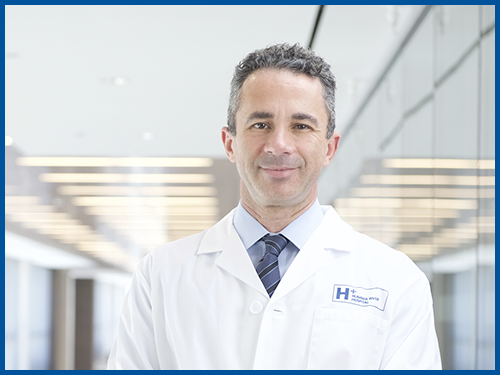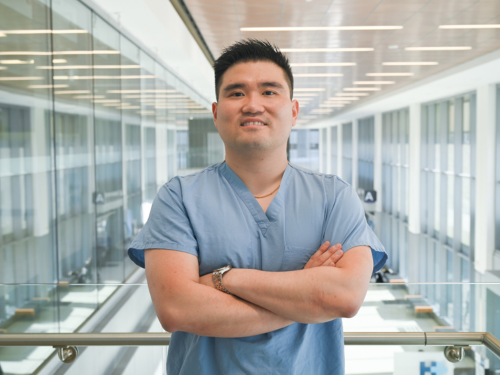Emergency
Humber River Health’s emergency department is open 24 hours a day, 7 days a week.
We are committed to providing patients and their families with excellent care.
Patients are treated based on the severity of their illness. This means someone may be admitted to a room that has arrived after you. We will try to keep you updated.
If you need non-emergency medical assistance, you have many options:
- Contact your primary care provider (family doctor or nurse practitioner)
- If your primary care provider is not available, call Health811 at 811/TTY: 1-866-797-0007
- To find a walk-in clinic near you, visit Central Healthline or call 1-888-470-2222, 8:30 a.m. to 8:30 p.m. 7 days a week
- See the Urgent-Care Or Walk-In Clinics In Our Neighbourhood
